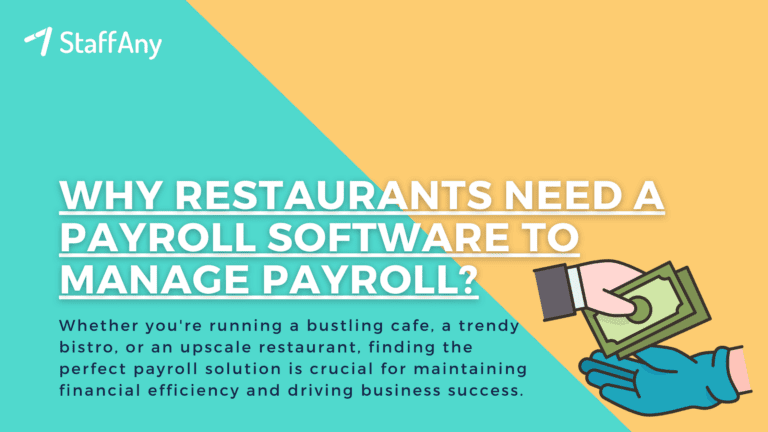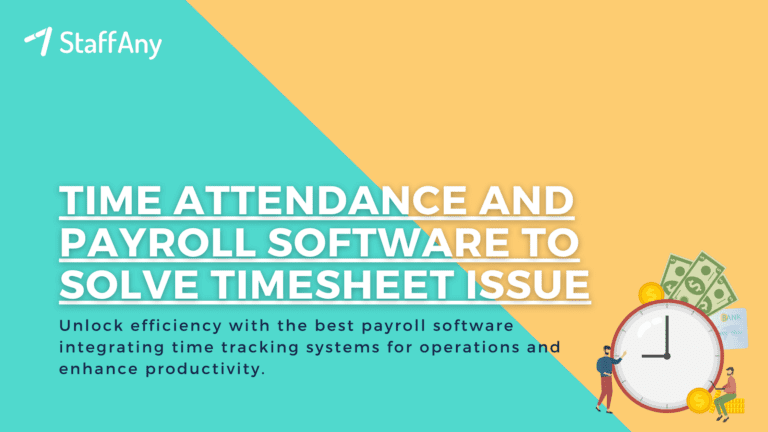Food and beverage is a symphony of flavours, aromas, and textures that delight our senses. Behind this harmonious orchestra lies the art and science of food and beverage management, a crucial discipline that ensures the seamless orchestration of dining experiences. From the meticulous planning of menus to the efficient coordination of kitchen operations and impeccable customer service, food and beverage management is the unseen force that elevates culinary encounters to unforgettable heights.
This article will explore food and beverage management more deeply, what the F&B manager does, and what makes a good F&B management. Let’s get started!
What is Food and Beverage Management?

Food and Beverage Management, often abbreviated as F&B management, encompasses the strategic coordination and supervision of all aspects of providing food and drink services. It involves diverse responsibilities, from designing menus that tantalise taste buds to managing the behind-the-scenes intricacies of a bustling kitchen. At its core, F&B management is about orchestrating a symphony of culinary expertise, service excellence, and operational efficiency.
What is the Job of a Food and Beverage Manager?
In food and beverage management, a manager conducts a culinary symphony, orchestrating various elements to create harmonious dining experiences. This role requires a fusion of creativity, operational prowess, and leadership skills. Here are the key responsibilities that define the job of a food and beverage manager:
1. Menu Planning and Design
At the heart of any memorable dining experience lies the menu. A food and beverage manager collaborates closely with chefs to curate a menu that marries culinary innovation with customer preferences. This process involves staying abreast of culinary trends, sourcing high-quality ingredients, and crafting dishes that tell a compelling gastronomic story.
The manager ensures that the menu reflects the establishment’s identity and appeals to diverse tastes and dietary requirements.
2. Kitchen Management
Behind the scenes of a bustling restaurant kitchen, efficient management is essential to ensure the seamless execution of culinary creations. The food and beverage manager oversees kitchen operations, from ingredient procurement and inventory management to recipe standardisation and food preparation processes.
By maintaining clear processes and communication, the manager minimises delays, optimises resource utilisation, and ensures consistent dish quality.
Read more: 5 Tools of Food Service Management
3. Staff Management
A skilled food and beverage manager recognises that a motivated and capable team is the cornerstone of a successful dining establishment. Staff management involves various aspects, including recruitment, training, scheduling, and performance evaluation.
The manager empowers the team to deliver exceptional service and maintain high culinary standards by fostering a positive work environment and ongoing training.
4. Cost Control
In the complex world of food and beverage, financial understanding is paramount. The manager is responsible for budgeting, cost analysis, and financial decision-making. By carefully monitoring expenses, analysing sales data, and implementing effective cost-saving strategies, the manager ensures that the establishment remains profitable without compromising the quality of ingredients or service.
5. Customer Service
Exceptional customer service is a hallmark of successful food and beverage management. The manager is pivotal in creating a welcoming and attentive atmosphere for patrons.
This involves training staff to anticipate and meet customer needs, addressing concerns professionally, and ensuring that every guest leaves with a positive impression. The manager cultivates a loyal clientele and encourages repeat business by building strong customer relationships.
A manager’s role extends beyond these core responsibilities in the dynamic food and beverage world. Adaptability is key as trends shift, customer preferences evolve, and new challenges arise.
A food and beverage manager must collaborate with marketing teams to promote special events, continuously learn to stay updated with industry developments, and complying with food and safety regulations.
Read more: Exploring 15 Different Types of F&B Services: An Overview
What Makes a Great Food and Beverage Managers at an F&B Service?
A great Food and Beverage (F&B) manager plays a crucial role in the success of a restaurant or hospitality establishment. The role involves overseeing the operations, managing staff, and ensuring the overall quality of the dining experience. Here are key qualities and skills that make a great F&B manager:
1. Leadership Skills
Effective leadership is essential for managing and motivating a diverse team of staff members.
A great F&B manager should inspire and lead by example, fostering a positive and productive work environment.
2. Communication Skills
Clear communication is vital for conveying expectations, providing feedback, and maintaining a harmonious workplace.
Strong communication skills are also important for interacting with customers, addressing concerns, and ensuring a positive dining experience.
3. Customer Focus
A customer-centric approach is critical in the F&B industry. A great manager should be dedicated to providing excellent customer service.
Anticipating customer needs, handling complaints effectively, and ensuring a pleasant dining experience are key aspects of customer focus.
4. Organizational Skills
F&B managers need strong organizational skills to handle the various aspects of restaurant operations, including scheduling, inventory management, and event planning.
Efficient organization contributes to smoother day-to-day operations and better overall performance.
5. Problem-Solving Abilities
The ability to think on their feet and resolve issues quickly is crucial for F&B managers.
Unexpected challenges can arise in a fast-paced restaurant environment, and a great manager should be adept at finding solutions to keep operations running smoothly.
6. Financial Acumen
F&B managers are often responsible for budgeting, cost control, and financial management.
Understanding key financial metrics, analyzing profit and loss statements, and making decisions that contribute to the financial success of the establishment are important skills.
7. Menu Knowledge and Creativity
A great F&B manager should have a strong understanding of the menu, including ingredients, preparation methods, and presentation.
Creativity in developing and updating the menu can set a restaurant apart from competitors and attract repeat customers.
8. Team Building
Building and maintaining a cohesive team is essential for a smoothly operating restaurant.
F&B managers should be skilled in hiring, training, and developing staff, fostering a positive team culture.
9. Adaptability
The hospitality industry is dynamic, and a great F&B manager should be adaptable to changing circumstances.
Flexibility in handling unexpected situations and adapting to evolving customer preferences and industry trends is crucial.
10. Attention to Detail
Precision and attention to detail are critical in food safety, cleanliness, and presentation.
A great F&B manager ensures that all aspects of the restaurant, from the kitchen to the dining area, meet high standards of quality.
11. Industry Knowledge
Staying informed about industry trends, new culinary developments, and customer preferences is essential for a successful F&B manager.
Continuous learning and keeping up-to-date with the latest industry advancements contribute to maintaining a competitive edge.
12. Time Management
Prioritizing tasks and managing time effectively is crucial in a busy restaurant environment.
A great F&B manager should be able to handle multiple responsibilities simultaneously without compromising on quality.
By embodying these qualities and skills, a great F&B manager can contribute significantly to the success of a restaurant, ensuring a positive experience for both customers and staff.
Read more: 11 Examples of Good Customer Service in F&B Industry
In a dynamic industry where trends evolve and expectations change, skilled F&B manager continually refines their approach. They stay updated with industry trends, invest in professional development for themselves and their team, and embrace technological innovations that enhance operational efficiency.
As you embark on your food and beverage management journey, consider leveraging technology to streamline your operations and enhance efficiency. One such tool is StaffAny, a cutting-edge roster making app designed to simplify staff scheduling and management. By embracing technology like StaffAny, you can free up more time to focus on refining your culinary offerings and delivering outstanding service. Contact us to learn more!











